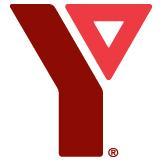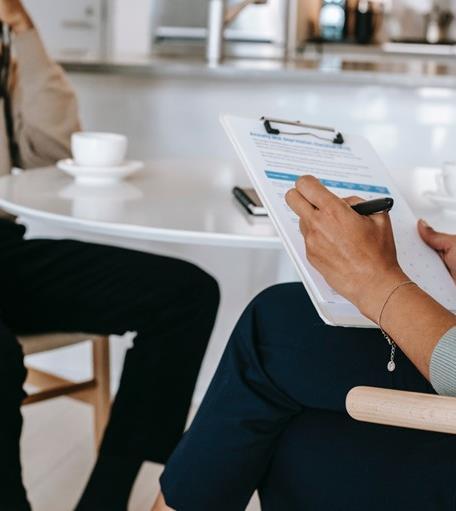

Workshop Goals
Our Goal is: To provide you with tools and information to help you feel comfortable and confident when interviewing for jobs or other opportunities.

What we are going to cover:
• How to best prepare for an interview
• Tips for attending interviews
• Feelings and confidence
• How and when to follow up after an interview
Let’s Get to Know Each Other!
Everyone has 30 seconds to tell us...
● Your name
● Your favourite subject
● What grade you are in
Then answer one of the following questions:
1. If you could travel anywhere, where would you go?
2. How would you describe your future in 3 words?
3. What is something you can do now that you couldn’t do a couple of years ago?
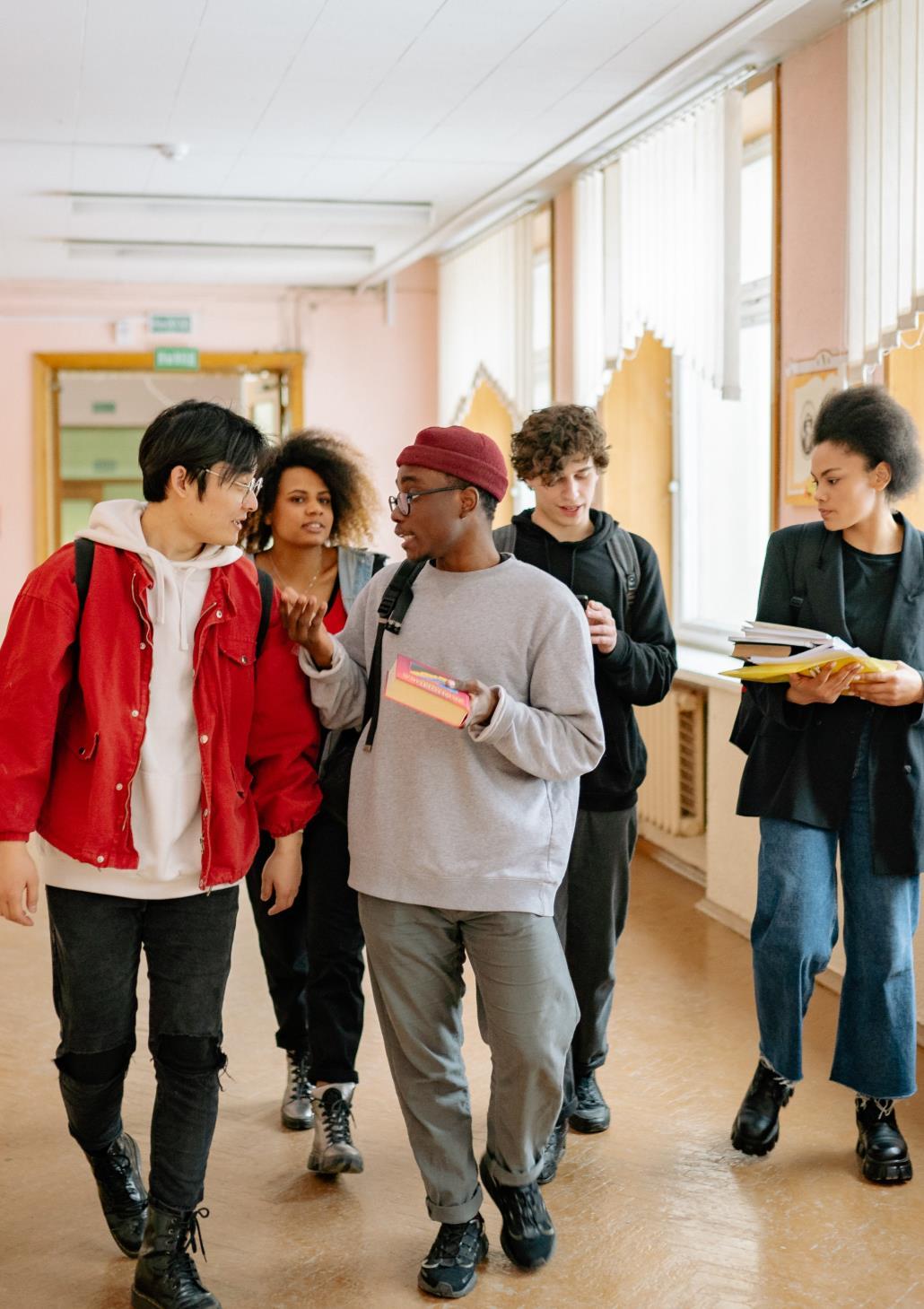


How to Prepare for an Interview
The main ways to prepare are to:
• Research
• Organize
• List
• Practice
Tip: Some workplaces have strict scent-free policies. To avoid any possible problems during your interview, do not use any kind of scented product.
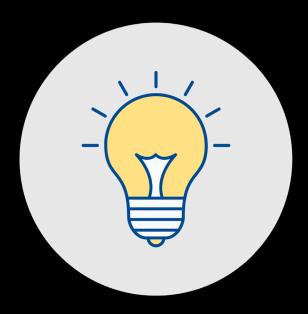
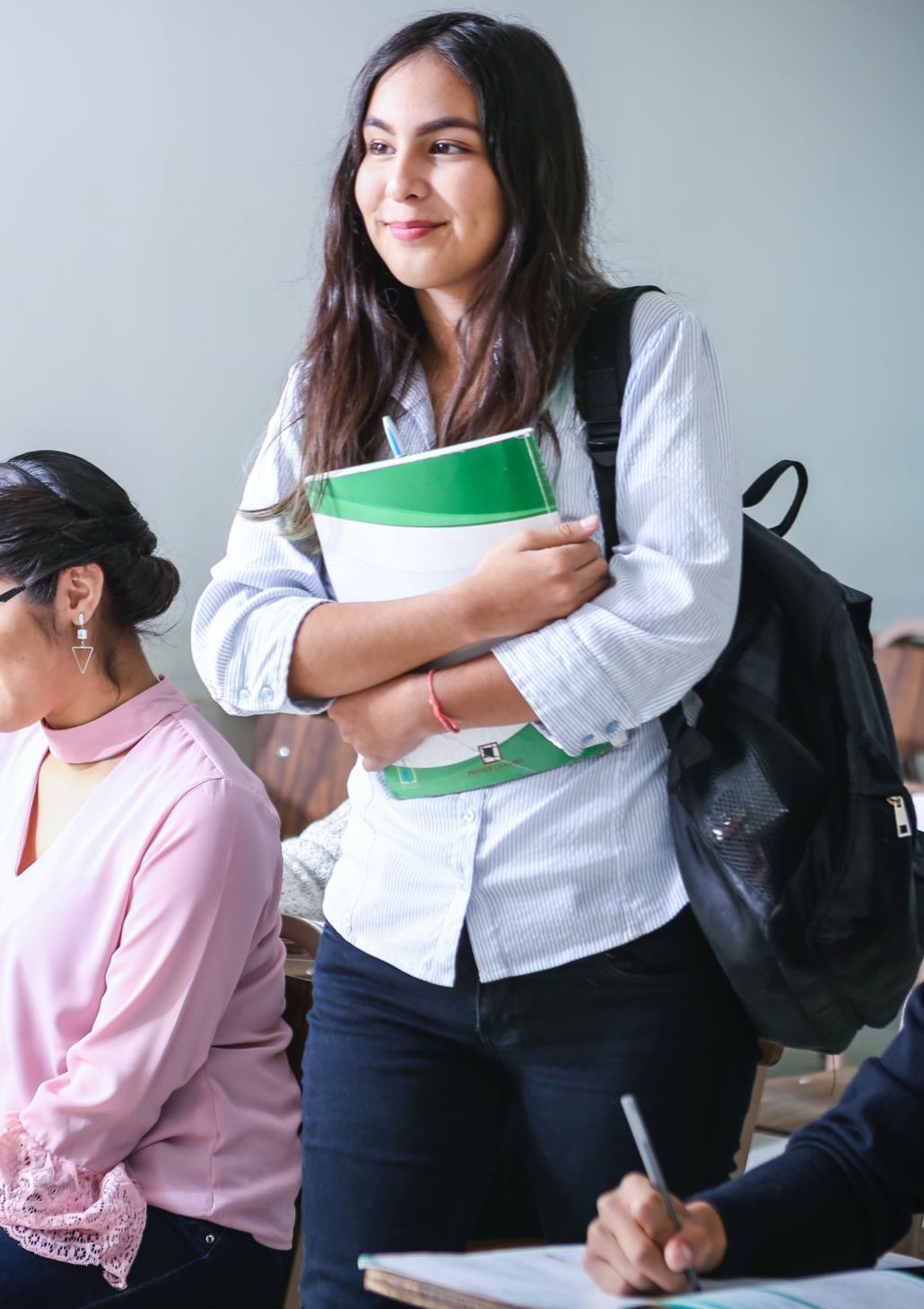
Research
What are things we should research before going to an interview?

• Job advertisement – Understanding the job position you are applying for is important prior to the interview.
• Company – Do a little research about the company's history, mission, and values.
• Location and transportation – If you are not familiar with the area, try to practice the route at least once. Otherwise, getting there 15 minutes earlier to avoid delays is a good idea.
Organize
What should be organized in preparation for a job interview?
• Method of travel – Use Google Maps or another app to get an estimate of the time it will take you to get there
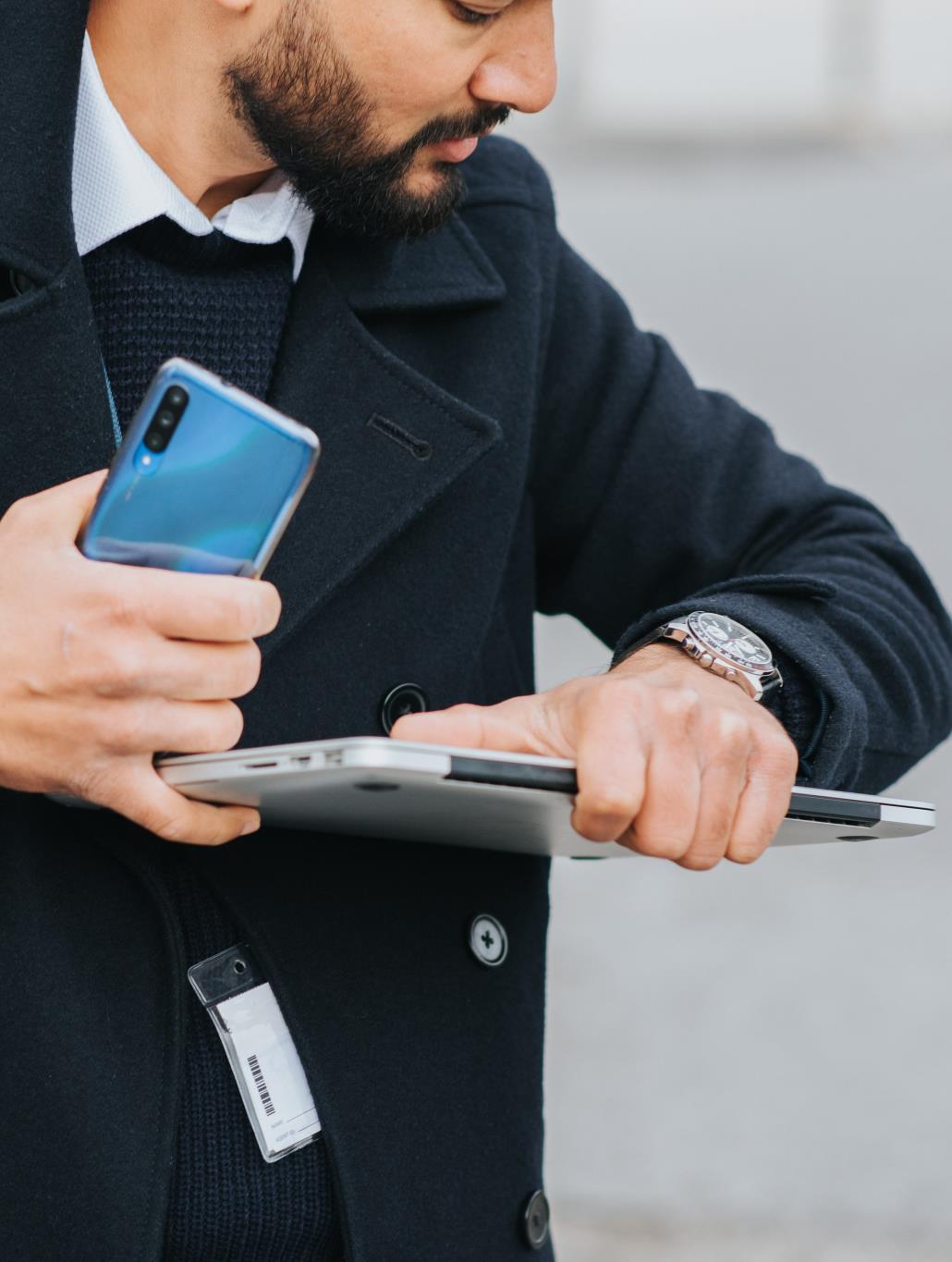
• Schedule – Punctuality is well perceived in Canadian culture. Arriving 10 to 15 minutes earlier can give the employer a good impression
• Taking notes – Bring a notebook and a pen with you to take notes during the interview
• Resume and references – Bring your resume and references in case they ask to see them
• Clothes – Wear something business casual (ex; no jeans or crop tops)
What do you think we mean by 'list' when we say "list to prepare"?
• Questions - What would you like to know about the company, role, and working environment?
• Availability - The days/hours you can consistently work and when you would be available to start.
• References – Have reference contact information (names, how they know you, phone numbers/emails).
Tip: Before handing in your references, make sure that you have asked permission for them to be contacted and give them information about the job you are applying for.

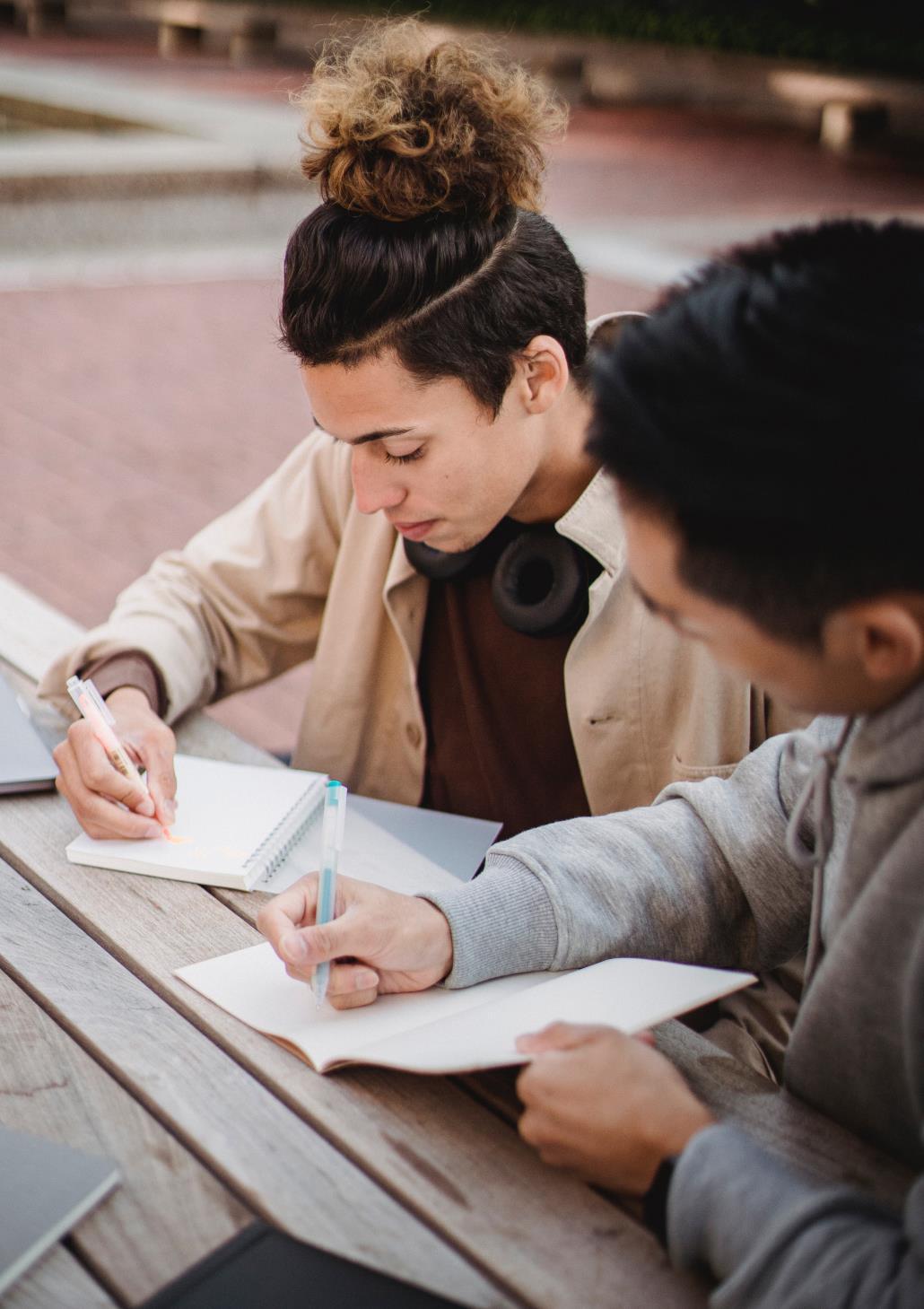
Practice Makes You Feel Confident
What should you practice to prepare for an interview?

● Introducing yourself
● Answering questions that may be asked at the interview
● Asking for clarification or for them to repeat the question
● Politely letting them know when you don’t understand the question
● Handling unexpected questions
● Asking the questions that you have prepared
● Thanking them for their time
● Body language
● Visualization
● Positive self-talk
Practice – Introductions
Keep it simple
• Smile – In Canada, Smiling can show a friendly and positive attitude
• Eye contact – In Canada, eye contact is very important - establishing eye contact when listening and speaking with an adult is well-appreciated
• Include your name – If you have issues pronouncing the name of the interviewer or supervisor, ask them to repeat it for you (you can practice by listening to their name on Google Translate)
Tip: In Canada, when meeting someone in a professional context, it is better to avoid any kind of contact (hugging or kissing), if the other person wants to give you a handshake, you can proceed to do so.

Practice – Answering Questions
How can you practice answering questions?
• Talk to yourself in the mirror
• Record yourself and watch/listen to the playback
• Practice with a friend or relative
• Write down answers on paper and read them aloud Use the worksheet from 'Preparing and Interviewing' in your workbook to write and practice saying answers to common interview questions.
Tip: The more questions you practice with different people, the more likely you will feel comfortable during your interview

Practice – Common Interview Questions
What questions have you been asked, or think you might be asked in an interview?

Practice – Surprise Questions
When someone asks you a very unexpected question and surprises you, try to:
• Acknowledge – Do your best to understand the question

• Think about your answer – Take a few seconds to think about your answer
• Answer as you would any other question – Be natural
Practice – Tips for Answering Interview Questions

• Keep it simple with straight forward and concise answers
• Be positive, but do not say things that are untrue about your experience or education
• Keep it professional and follow their lead
• Ask for a question to be repeated, clarified, or ask for an example for understanding
• Be comfortable with silence and take your time answering when you need to
• Be prepared for behavioural questions and STAR answers (we will talk about the STAR method later on)
Some Common Challenging Questions in an Interview
"Tell me about yourself": Your response doesn't need to be detailed or long. Employers are looking for a quick summary of your education, skills, and professional experience to help them determine what questions to ask next.
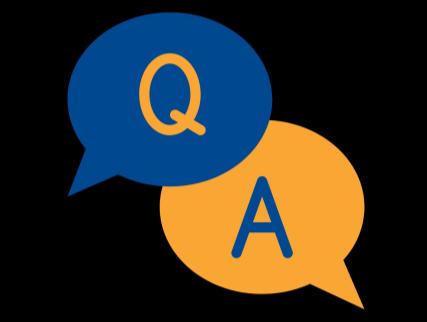


"My name is Amir, I am from Egypt. I moved to Canada with my family 3 years ago, I am in grade 11 in high school. I like art and spending time with my friends. I am applying for this job because I want to save money for college, and I know someone that works here that said it is a good place to work".
"Tell me Amir, what do you consider your greatest weakness?" Choose a weakness that will not prevent you from succeeding in the role. Talk about how you've been improving this weakness. Example (a cashier job):
. Avoid saying…
"I am not good with numbers and paying attention to detail"
A better answer would be…
✔
"I am not so familiar with cash registers yet, but I’m a quick learner"
"Amir, why should we hire you over other candidates?" Be confident and highlight how your experience, passion, and dedication can contribute to the organization!
"I believe I'm the right fit for the job because I possess all the skills and qualifications you require."
Criminal Record and Vulnerable Sector Checks
Organizations are responsible for determining their own unique requirements for hiring people. Many organizations require people to get criminal record or vulnerable sector checks for different reasons, some of which include employment, volunteer work, adoption, immigration or foreign travel, or name change. One of the questions that could be asked during your interview is:

Tell me Amir, have you done criminal record and vulnerable sector checks?
- If you don't have one: I do not have one, but I am aware that they can be obtained by the local police. I can get one if I am required to.
- If you have it: I do have it, it was done on the (insert date). I can provide them for you if you would like.
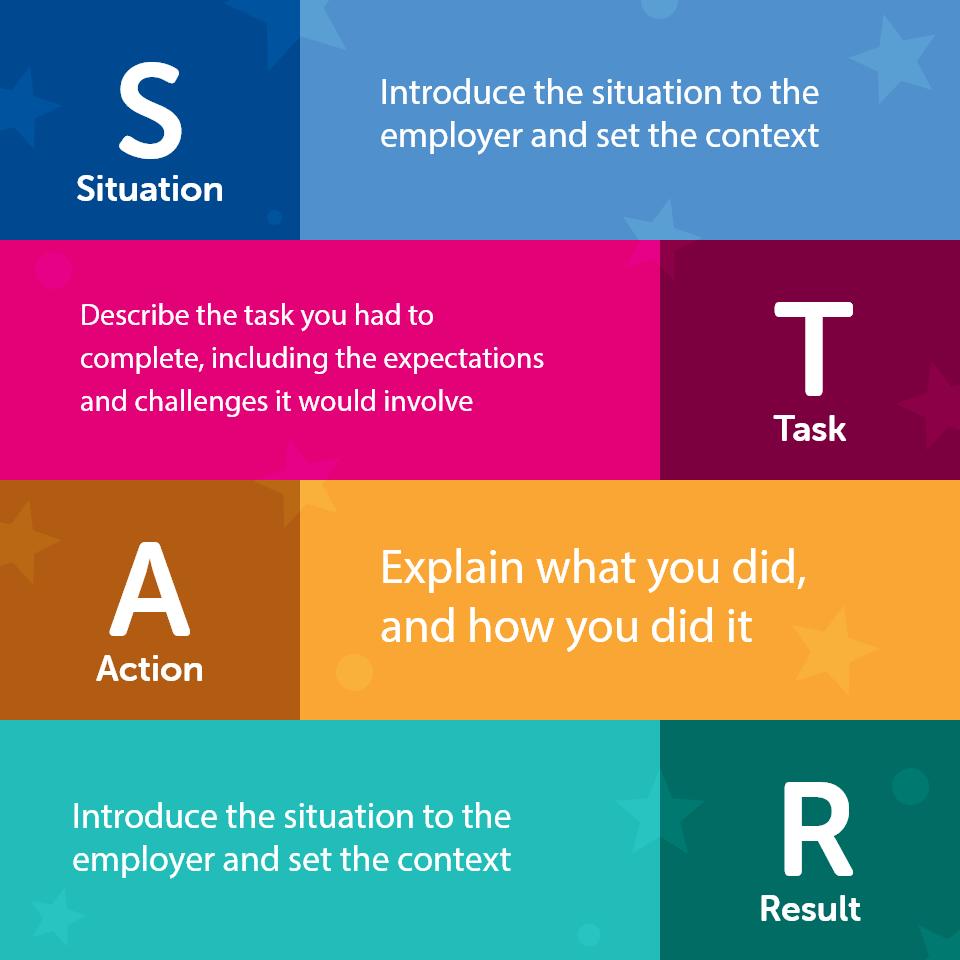
Practice the STAR Method
Situation
When I was a junior in high school, there were several students in my math class who were struggling with some of the more difficult and complex concepts.
Task Action Result
With an upcoming national exam, I was asked by my math teacher to start an afterschool session to assist the other students.
I stayed after school twice a week to review class materials and homework. I created a comprehensive study guide. I demonstrated the best methods for solving difficult problems, explained strategies that worked for me, and developed new problems to help them practice.
Our class average for the national exam was the highest it had been in over ten years, and overall the students I helped were able to develop a better understanding and appreciation for math.
Practice Interview Questions Worksheets
In your Module 3 workbook 'Preparing and Interviewing', you have a worksheet with common interview questions you may be asked that you can prepare answers for.

• Take a few minutes and write your answers to 1 question on the worksheet.
You will need them for an activity shortly.
Preparing Your Own Questions
Interviews are a two-way street. Employers are asking you questions to assess your abilities and how well you would do in the role. You are also there to find out if the job and the company is the right place for you. Asking your own questions will also show employers that you are interested in working there.

Preparing Your Own Questions
Common questions you might want to ask are:
• What does a typical day or shift look like?
• Why are you hiring for this role?

• What training will I receive?
• What does success look like to you for the person stepping into this role?
• What are the next steps?
• Will you only be contacting selected candidates?
• Will you be reaching out by phone or email?
• How long should I expect to hear back from you?
Thanking Them
When an interview is ending, let them know you:

• Appreciate their time
• Enjoyed learning more about the job and company
• Looking forward to hearing next steps
• Are happy to provide anything else they need
Be sure to thank them at the beginning and end of the interview.


Calming Nervousness Box Breathing Exercise

Tips for Attending an Interview

• Arrive 10-15 minutes early – consider potential delays like construction, winter weather, bus schedules, etc.
• During the winter-time, be extra careful because there can be big delays
• Be confident and humble
• Listen
• Be positive
• Ask for clarification or for a question to be repeated if you don't understand
• Be comfortable in silence
• Be aware of non-verbal communication (body language, eye contact, etc.)
• Sometimes an employer will put out their hand to shake hands, so practicing a friendly and short firm handshake is recommended
Tip: There may be a protocol due to Covid 19 for sanitizing hands, avoiding handshakes, etc. Further if you do not or cannot shake hands you can smile instead and say that it was nice to meet them, and that you are looking forward to the interview
Know Your Rights
Employers are not allowed to ask questions about these identity factors:
• Race
• Nationality, ethnic origin, citizenship, place of birth, etc.
• Skin colour
• Religion
• Age
• Sex (including discrimination because of pregnancy or childbirth)
• Sexual orientation
• Gender identity or expression
• Marital status
• Genetic characteristics
• Family status
• Disability (physical, mental, or otherwise)
Duty to Accommodate
Accommodation: adaptation or adjustment put in place to satisfy a need
• You have a right to be provided with accommodations for an interview. You can ask for these accommodations when you schedule your interview. Sometimes, applications will ask if you will need any accommodations as well.

Examples of Accommodations
1. You need screen-reading software to complete a pre-screening test
2. You need to modify the interview schedule because of family responsibilities
3. You need interview questions prior to the interview because of a disability
4. For religious or cultural reasons, you do not shake hands Sharing requests for accommodations needs with a potential employer for an interview should be light, clear, and straightforward for them to see that including differences makes the workplace stronger and more inclusive.
Also, showing the employer that you can do the job when the accommodations are in place.

Advocating for Yourself
How to deal with personal or discriminatory interview questions
• Highlighting your ability to perform the job and how any of these personal aspects would not get in the way of your ability to complete job tasks
• Letting them know that you would rather not answer the question and re-focusing on what is relevant to performing your job duties
How to ask for accommodations
• Ask once you know you need an accommodation
• Be prepared to discuss solutions and strengths – consider the employer's needs and work together
• Ask for the accommodation in writing so you can keep a record of the request
If you do not feel comfortable asking for an accommodation during the selection process that is okay, but keep the job requirements in mind and how your employer can better support your ability to get the job done right.

Canadian Body Language
A positive first impression is very important in the job searching process. When you first meet your potential employer or manager, they'll notice your body-language, and this will influence their first impression of you. Things to consider:

• Clothes
• Facial expressions
• Eye-contact
• Handshake
• Scents
• Posture (open or closed)
• Tone of voice
• Distance you stand from them
Eye Contact
Eye contact can feel scary, challenging, and uncomfortable. It is an important custom in Canada that shows respect and might be different from other culture’s customs.
Tips:
• Wandering eyes can make the other person think you're not interested, or that you are bored
• If you are feeling uncomfortable, you can also look at the bridge of their nose or forehead
• Practice eye contact when introducing yourself and answering questions during a practice interview


Making a Good Impression at an Interview
• The handshake: some employers might prefer to avoid contact. Only give a handshake if the interviewer proceeds to do so.
• How to do a handshake: the webs between your thumb and finger should touch. Give two firm up-and-down shakes. Don't squeeze too tight to hurt the other person's hand. A light handshake shows a lack of self-confidence. Smile and maintain eye contact.
• The tone of voice: calm, soft, and even tone of voice indicate confidence.
• Posture: sit near the end of the chair; sit up straight and lean in a little to show interest; when possible, keep your hands visible and gesture them every once and while; hold your pen so you can take notes.
• Hands: avoid pointing when you move your hands to express yourself; do not gesture your hands/arms above your head; avoid touching your mouth/face.
Tip: For part time student positions, handshakes are currently not commonly taking place at interviews. For future careers and professional positions, it is a good idea to be prepared for future workplace goals and handshakes.


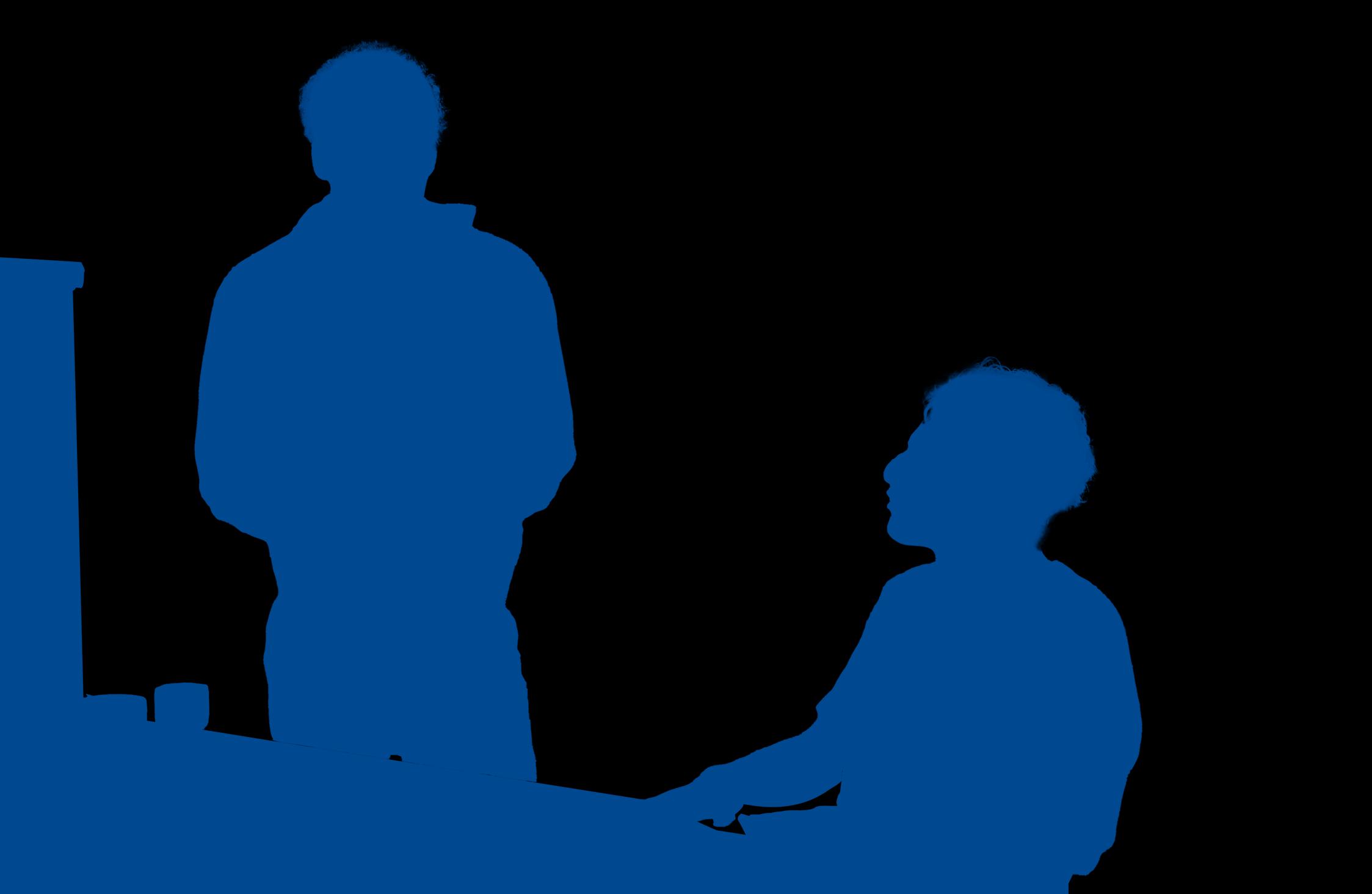
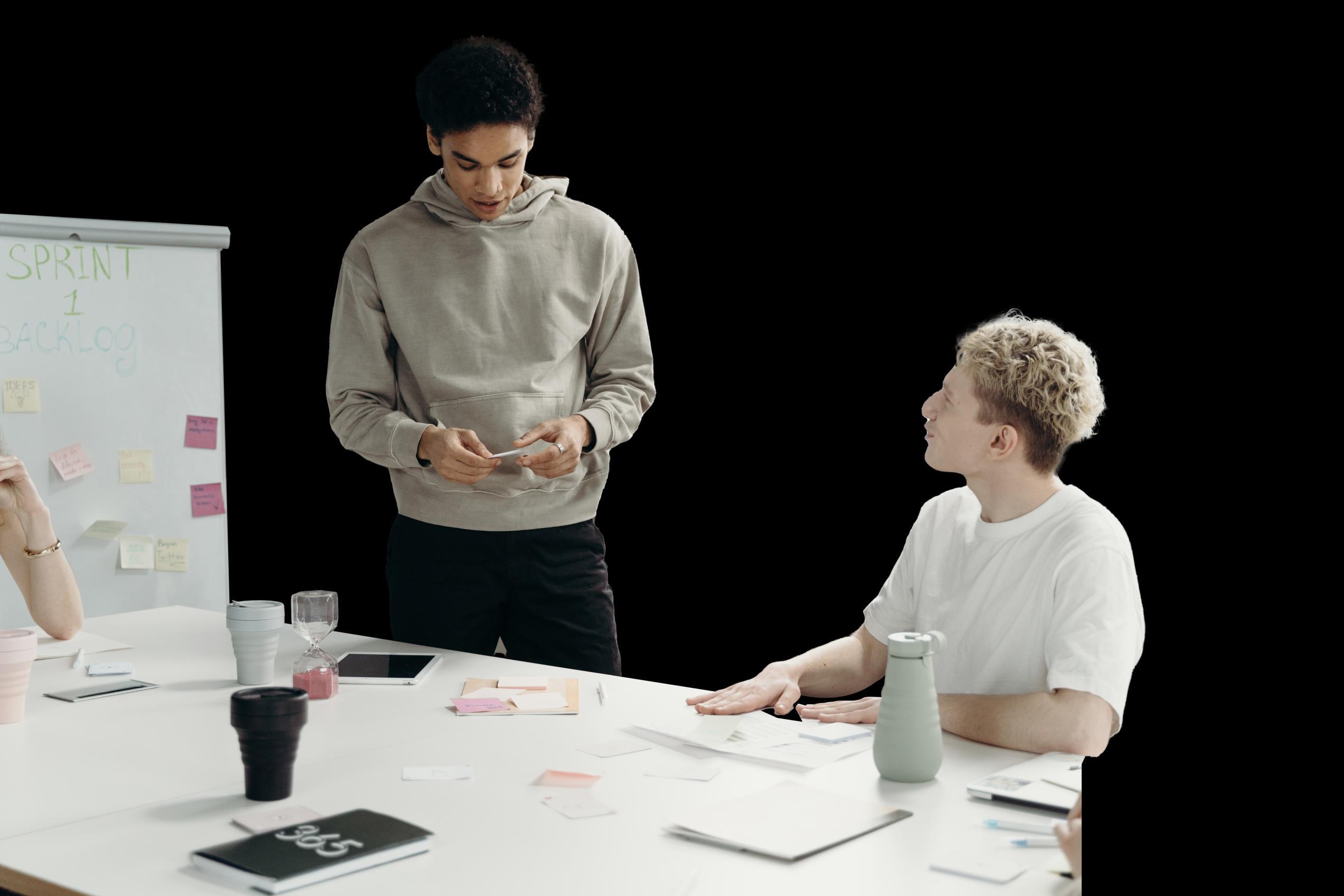
It’s Go Time! Mock Interview Exercise
You are about to walk into an interview for your dream job - taste tester at a chocolate factory!
Paired with a partner, you will take turns as interviewer and interviewee.
Prep (5 min)
o Introduction
o Answers to:
1. How does your experience relate to this job
▪ Can you tell me about a time you had to give someone negative feedback, and how you handled it?
• Interview (5-10 minutes each)
• Group debrief (5 min)
Reminders: smile, make eye contact, and maintain a calm and polite speaking tone
Mock Interview Debrief

Share your thoughts on your experience
• How do you feel you did?
• What do you feel you did well on?
• What will you work on for future interviews?
• How did you feel answering the surprise question?
• What did you learn from this experience?

Tips for Following Up
Here are some tips and reminders for following up on a job you have interviewed for:
• If appropriate and if you have the contact information - send a thank you (via email) 24-48 hours after the interview
• 7-10 days after an interview follow up to check on the status of their hiring process and your candidacy
• If you don’t hear from them after a month, you most likely aren’t getting the job, focus on the next one
How to follow up:
• State your name, position you applied for, and interview date
• Thank them for taking the time to interview you
• Remind them of your relevant strengths and why you are interested in working for them

• Let them know that you look forward to hearing back from them about the selection process
• Remind them of your availability
• Thank them again for their time
Note: Employers may be too busy for a phone call or conversation so an email thanking them may be better.
Follow-up Email Template
Dear [Interviewer’s Name],
Thank you so much for taking the time to talk with me [today/yesterday]. I loved getting to hear about [interesting thing you learned from this person] and was especially impressed by [quality or trait of the company or team that made you even more eager to work there]. Our conversation reinforced my excitement to join [company] and help you all [achievement you would support in this role]. I look forward to hopefully working together in the future.
Best Regards, [Your Name]
• It is hard to deal with rejection in our life. This also could be experienced in the workplace.
• If an employer gets back to you to inform you that you were not selected:
• Thank them for getting back to you: "Thank you for getting back to me, I am sorry to hear I was not selected. Please keep my resume in mind if something else becomes available."
• Ask for feedback: "Would it be possible to get some feedback from you so I can improve myself for the next opportunity?"

What if they get back to you to say you were not chosen
Personal Reflection
• Acknowledge feeling rejected and any emotions that may come up
• Name your feelings (example: "I feel disappointed that I didn't get the job")
• Give yourself the time to feel everything
• What are your thoughts? (example: "no one wants to hire me")
• Challenge negative thoughts (example: "this job didn't work out, but I can try again. I will find the right fit for me")
• Think of your strengths and accomplishments
• Seek support
• Reflect on it (example: "what could I improve for next time?")
• Practice self-care strategies (example: go for a walk, connect with friends, watch movie...)



